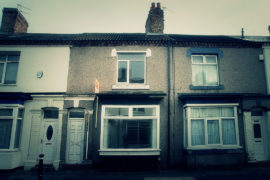Scratch the surface of almost any BBC statement about ‘impartiality’ or ‘bias’ and you unearth rather an unpleasant smell.
The BBC says no EU money was used in the making of its Sunday night pro-EU extravaganza The Great European Disaster Movie, which depicted in ludicrous, extremist terms the total disintegration of civil society across the Continent, if, God forbid, the EU was forced out of existence.
Note the weasel words: ‘in the making of’. The reality is that post-production, the film-makers Bill Emmott and Annalisa Piras – both of whom are pro-EU fanatics – have told the outside world they are receiving EU money for the transmission of the film in other languages. So put another way, it is an EU propaganda project.
And the BBC were co-producers of that film.
What’s also not clear is who did fund the project. It was made by Piras’s company Springshot Productions, and that means its financing is totally opaque. Things here don’t add up. It’s unlikely that the budget of a project of such scale and production standards would be anything less than £1m, and yet Springshot is tiny. According to the company website, it has made only one other film, two years ago.
The point here is that it is only larger production companies turning over millions a year that can afford to make glossy hypothetical dramas – and they don’t generally make money, which is why they are so relatively scarce. Someone with deep pockets and a deep desire to spread massively pro-EU propaganda was behind it. The BBC should tell us who this was so we can make up our own minds about the decision to show it.
It seems that someone, somewhere in the higher echelons of the BBC hierarchy has a guilty conscience, because immediately after it was shown, a very rare occurrence happened, the BBC equivalent of a Blue Moon. In a Newsnight special hosted by Robert Peston, two genuine EU ‘come outers’, Mark Reckless, the Ukip MP, and Peter Hitchens, the Mail on Sunday columnist, were fleetingly allowed to make some of the arguments in favour of withdrawal and to explain why the claims by Emmott and Piras were preposterous.
Unlike the unremitting one-sidedness of the film, the views of Reckless and Hitchens were of course offset, notably by a spokesman of the Greek Marxist party Syriza, who agreed with Emmott in ascribing all the current massive economic problems of the EU to nasty ‘austerity’.
There are other BBC-related problems in this film which only surface with digging. Emmott, a former editor of the Economist, and Piras, an Italian who worked as a foreign correspondent in London for many years, are clearly united in their huge desire to ram the need for the EU down our throats.
They are so fanatical that they have set up an organisation called The Wake Up Foundation, a so-called charity, the main aim of which – though clothed in high-flown language – is another vehicle to spread their EU bile. A feature by Emmott on their website in which he compares Nigel Farage to Silvio Berlusconi typifies the approach.
Far more concerning about The Wake Up Foundation, however, is that one of its trustees is Richard Sambrook, who is a former head of BBC newsgathering and Director of News, who was moved sideways to the World Service at the end of his BBC career because of question marks in some quarters over his judgment relating to the BBC’s handling of the fall-out from the Iraq war.
Sambrook, after a spell as a public relations adviser, re-surfaced as a Professor of Journalism at Cardiff University. His department was commissioned by the BBC Trustees in 2011 to conduct research linked with the Stuart Prebble inquiry into whether the BBC was covering EU-related issues in accordance with the Charter.
That research, as has been reported by Kathy Gyngell on TCW, was ineptly conducted and as a result gave the wholly false impression that BBC news programmes gave adequate coverage to eurosceptic and withdrawalist opinion. Not only that, the main person who conducted the research had recently received a substantial slug of EU cash from the EU for a project designed to ascertain how the EU might better project itself.
So, put another way, the BBC commissioned a rabidly pro-EU programme from a film making duo who have close professional and organisational links with a former Director of BBC News who, in turn, has been appointed by the Corporation to tell the outside world – on a supposedly ‘objective’ basis – how balanced and impartial is the BBC’s output in relation to the EU.
The linkage raises several awkward questions. Was Sambrook directly involved in the making of the European Disaster Movie? Was he involved in any way in persuading the BBC to show it and to become co-producers? To what extent is he involved in the dissemination of the pro-EU propaganda of The Wake Up Foundation? Were the BBC aware of his links with Emmott when they commissioned his department to do the Prebble survey?
Something in the state of Denmark, if not rotten, smells very fishy indeed.









